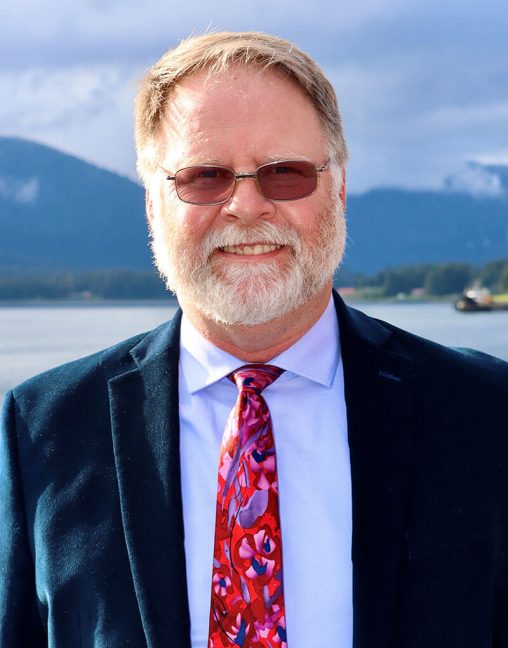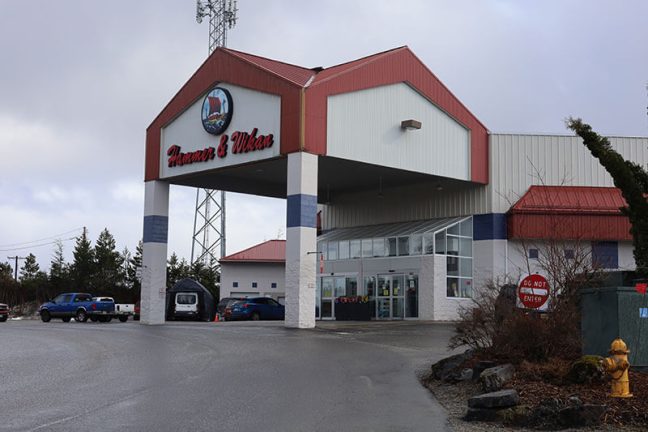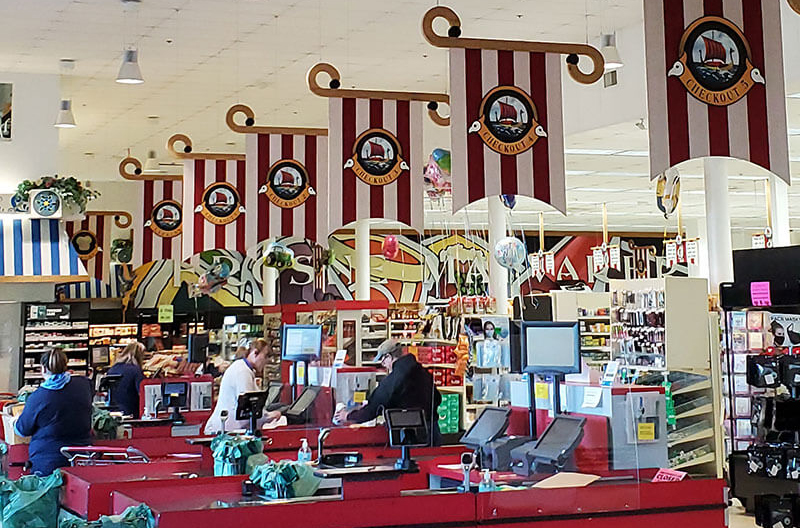Independent grocers across the U.S. face many challenges, but additional obstacles face those operating in Alaska. Hammer & Wikan is an independent grocer in Petersburg, Alaska, which is located on Mitkof Island in the southeastern part of the state.
Hammer & Wikan was founded in 1921 by John Hammer and Andrew Wikan, two Norwegian immigrants. They rented a small store front on Main Street, selling milk from Browns Cove on the mainland. In 1924, they borrowed $1,000 and built their own building.
Today, in addition to the grocery, Hammer & Wikan also owns a hardware business and convenience store. The company was incorporated in 1956.

The descendants of founders Hammer & Wikan own shares in the company and sit on the board of directors. Bruce Westre serves as board president, but CEO and General Manager Jim Floyd handles the day-to-day operations.
The labor market poses a challenge for the grocer. As Petersburg is a fishing community, Floyd said young people “can make some pretty darn good money” by working in that industry. “They can make a lot of money in a short amount of time because fishing is seasonal.”
The shortage of affordable housing also affects the labor pool.
A big hurdle most grocers in the state face is the cost of goods and transportation. While many rural areas are dependent upon airplanes for deliveries, other locations rely on the waterways.
Located on an island, Hammer & Wikan receives its supplies twice a week via a barge from the port of Seattle. During major holidays, it gets just one barge a week. The full-line grocery store must place its orders 10 days in advance. Even then, delivery is not guaranteed.
Floyd said a recent delivery was scheduled to arrive during the morning. But because the barge missed the tides, it did not arrive until late that night. Last year, a problem with a bridge in Seattle caused a delay.
He also noted that if a mistake is made on a delivery, it takes about two weeks to correct.
“Two weeks in a row, we were shorted on our chicken loads. Some things we can fly in through Alaska Cargo, but chicken cannot – it’s an extreme perishable. Unless it’s frozen, it cannot be shipped on the airplane. That is a huge, huge challenge for us.”

Floyd said Hammer & Wikan also is limited on refrigeration and freezer space, along with dry storage capacity. The store is in the process of a phased construction project to build a warehouse behind it, but that also presents a challenge unique to the state.
According to Floyd, the local terrain is called muskeg. Being located in a rain forest, he said grass repeatedly “grows and it lays down,” accumulating over thousands of years. Behind the store, they had to dig through the layers of grass, dirt and water to reach the hardpan.
“That’s expensive,” he said. “Either they get to the hardpan or you have to build everything on stilts.”
Floyd said they will next build a cement pad about 12×80 feet and construct a cover so they can put in trailers for refrigerated, freezer and dry storage space. He called this step a “workflow Band-Aid” until they can build the warehouse.
He said building is difficult and expensive in Alaska due to having to bring in materials and waiting until a contractor is available.
Prices are higher in Alaska than the U.S. mainland because everything has to be shipped in, Floyd said.
“Alaska does not have factories. The only thing Alaska has is natural resources … There’s oil in Alaska, but the oil gets shipped down to processors and it has to come back.”
He said the southeastern part of the state is all islands, and wood and other building supplies have to be brought in.
“Yes, everything is more expensive. But the other thing is that, for example, we don’t have malls or anything like that. It’s a simpler life.”
Floyd noted that a great deal of the state’s economy relies on tourism, as the natural beauty of Alaska and its wildlife draw visitors.
Grocery store is community hub
Petersburg is a community of about 3,100 residents, with just two grocery stores. Hammer & Wikan is the largest. Floyd said the building is 25,000 square feet, but the sales floor is 15,000 square feet.
The retailer offers a full line of grocery items. It has a bakery and deli, meat and produce and other departments. However, it does not carry fresh fish. Since Petersburg is a fishing community, Floyd said the store does not want to compete against that local market. It does carry some frozen varieties, such as ahi and tuna, along with a selection of smoked and canned fish.
Floyd added that Hammer & Wikan tries to carry “a little bit of everything” to accommodate the town’s diverse population.
He noted that the store, as do many other grocers in the state, will carry items from Costco. He said there are no Costcos other than in large cities such as Juneau and Anchorage. Local grocers will buy items from Costco and put them on their shelves.
“We buy from Costco and have to do our slight markup on it … It’s something that customers really like and appreciate.”
Floyd also pointed out that whereas in many areas of the U.S., restaurants are competition for grocery stores, that is not the case in Alaska.
“The restaurants buy from us, the lodges, the boats – whether it’s tourism or fishing boats, they buy from the grocery store. Everybody is our customer.”
[RELATED: Alaska’s ‘Famously High Food Prices’ Result Of Logistical Hurdles, Weather]
He added that for serving a small community, the store’s offerings are “very spectacular.”
“Down south, a local store probably wouldn’t offer as much as we do, because you can drive to another town and get things, or you could order it. Here, for example, if you order from Amazon, it takes like a month to get something.”
In addition to its offerings of groceries, Hammer & Wikan offers Petersburg residents a place to visit with friends and neighbors they may not get to see often. Noting that it rains a lot of the time, he said the store offers a nice, dry place to congregate.
The town is family oriented, and Hammer & Wikan provides donations to local sports teams and supports the community in other ways. The company recently paid for the swings in a new city park.
As hunting and fishing are big activities in the area, the company is a corporate sponsor of a club that teaches kids about gun safety. It also allows access to a smaller parking lot for community festivals and events.
Floyd noted a Fourth of July celebration is being planned, and the annual Little Norway Festival was held recently.
“This is a predominantly Norwegian town … settled by Norwegian immigrants,” he said. “We celebrate that. We have a lot of indigenous people who live here, too, and we’re very inclusive of that. It’s all about trying to have these great town activities.”
Floyd personally gives back to the community as the president of the Petersburg Chamber of Commerce, serving on the planning commission and taking on the role of Santa Claus.
“The nice thing about Petersburg is it’s still very family oriented … It’s a very safe community,” he said. “People come here to raise their kids. We have a good school system, and most everything is within walking distance.”

